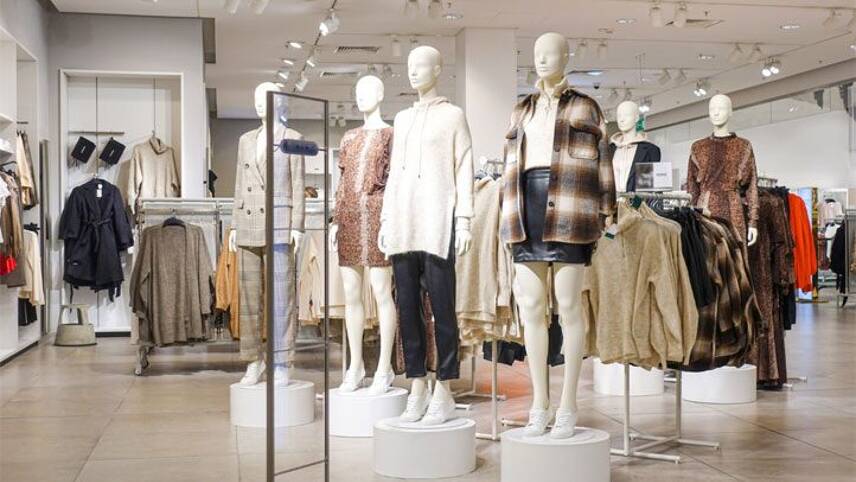Register for free and continue reading
Join our growing army of changemakers and get unlimited access to our premium content

The report forms part of the Foundation's ongoing 'Fossil Fashion' campaign
Published today (30 June) by the Changing Markets Foundation, the ‘Synthetics Anonymous’ report assesses brands across the spheres of fast fashion, luxury fashion and online retailing based on their sustainability claims. The brands analysed are Asos, Boohoo, Forever 21, George at Asda, Gucci, H&M, Louis Vuitton, Marks & Spencer (M&S), Uniqlo, Walmart, Zalando and Zara.
Across all of these brands, 39% of products assessed came with sustainability-related claims such as “recycled”, “eco”, “low-impact” or simply “sustainable”. The Foundation assessed whether these claims stood up against the Competition and Markets Authority’s (CMA) new guidelines on avoiding greenwashing; 59% did not.
The CMA’s guidelines cover accuracy; the avoidance of ambiguity; not hiding or omitting important information; enabling comparison between products; covering impacts across the product life-cycle and ensuring claims can be substantiated. Brands that fared worse on greenwashing than the average among the group were H&M, with 96% of claims flouting the CMA guidelines, and Asos and M&S, with 89% and 88% of claims failing to measure up respectively.
As implied by the title of the report, the Foundation’s focus was around the materials used to make the garments, accessories and footwear assessed. H&M was highlighted as a particular concern in the report; its Conscious Collection was found to contain more synthetic materials than its main collection, with labels on many items failing to reveal what percentage of these materials were recycled.
It is worth noting that the brands not found to be greenwashing were, most often, simply not making sustainability-related claims about their products, rather than being able to support claims for many products. Of the products assessed in the report, none from Boohoo, Forever 21, Uniqlo or Louis Vuitton came with a sustainability claim. In terms of making claims that usually aligned with the CMA principles, Zara and Gucci ranked best.
The report comes as the CMA continues to ask British companies for feedback on applying its guidelines. In the EU, meanwhile, the European Commission is working on two new legislative initiatives that should include measures to avoid greenwashing and make sustainability claims more reliable – frameworks called ‘Empowering Consumers for the Green Transition’ and ‘Substantiating Green Claims’.
Material world
As well as assessing the claims of brands, the new report charts their overall use of virgin, fossil-fuel-based synthetics. This acts as a follow-up to a recent analysis, entitled ‘Fossil Fashion’, which found that the production of virgin polyester globally has doubled since 2000. Polyester is the most commonly used synthetic in the fashion space.
Following the publication of that initial report in February, the Foundation wrote to 49 fashion brands requesting information on their overall use of synthetic materials each year; what percentage of their products contained synthetics; whether synthetic use is decreasing or increasing and their long-term plans on sustainable materials. Information was compared with that publicly available on the brands’ websites.
Across all topics, none of the brands received an overall classification as a ‘frontrunner’. Most of the brands to have received the worst overall classification, the ‘red zone’, simply failed to disclose to the Foundation or to provide information online. Included in this cohort are the likes of Primark, Target, Walmart, Uniqlo, Wrangler, Burberry, Gap, Gildan, Lululemon, Patagonia, The North Face and Timberland.
Some brands in the ‘red zone’, however, did disclose. Adidas stated that some 90% of products contain virgin synthetics, with polyester being the single most-used fibre across its clothing range. Similarly, Nike’s latest impact report revealed that it used more than 152,000 tonnes of polyester and 111,490 tonnes of rubber in the financial year 2020.
Synthetics are of particular concern to the Foundation and other bodies working on sustainable fashion as they are mostly used in textile blends, for which no recycling solutions exist at scale. The Ellen Macarthur Foundation states that “less than 1% of the material used to produce clothing is recycled into new clothing”.
When used in blends or as mono-materials, whether these are recycled or not, synthetics also contribute to microplastic pollution in water every time they are washed. Half a million tonnes of microfibres are estimated to enter the ocean annually from fashion.
Moreover, synthetic materials bear a significant climate footprint. The Changing Markets Foundation’s February report revealed that virgin polyester production is now generating 700 million tonnes of CO2e every year – as much as 180 coal-fired power plants.
Spotlight on gender inequality
In related news, the World Benchmarking Alliance (WBA) has this week published its first gender benchmark, ranking dozens of the world’s biggest fashion brands on their goal-setting, in-house processes and their engagement with policymakers, the general public and other key groups on issues such as gender-based violence.
The average score among the 35 businesses analysed was just 29 out of a possible 100. While 80% of the businesses have made commitments to address gender-based violence and harassment across the supply chain, less than one-third were able to prove that they have followed through on the ground with training. Moreover, less than 10% of the companies were able to prove they are taking active steps to address gender pay gaps in the business and supply chain.
“Apparel isn’t walking the talk when it comes to gender equality,” the WBA’s engagement director Paulina Murphy said. “For decades, these companies’ clothes have dressed and inspired millions of women, but the same clothes are empowering some at the expanse of others…. This lip service has to stop.”
Sarah George


Please login or Register to leave a comment.